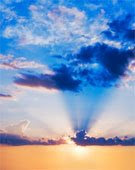http://www.theargus.co.uk/communitypages/hove_park_and_goldstone_valley/4804103.Muslims_and_Christmas__What_they_really_think/
By Kenton Hadley, community correspondent
It is the time of year for traditions, whether it be going to Church on a frosty Christmas morning or the almost cast-iron guarantee that there will be someone sitting on a plastic garden chair or similar around the festive dinner table.
Another tradition that has become popular in recent times, which isn’t quite as funny as having to put extra bacon across the part of the turkey that the cat bit into, is that of reading about or seeing a news report featuring someone accused of seeking to scrap everything Christmassy and replace it with their own beliefs and customs.
These days it seems to be something that is as popular as Father Christmas himself and the debate seems to centre around what some people seem to see as Christians being pushed out of the picture. Not only that but it is often Muslims that are in the firing-line as the ones doing all the pushing. Tariq Jung, who is the Chairman of the Brighton and Hove Interfaith Contact Group and a Muslim who in the dark days following 9/11 was called “Bin Laden” by total strangers, is far from wanting to cancel or interfere with people's Christmases. In fact he looks forward to this time of year as it is the only time of year he can get a Halal turkey before relaxing in of front what he calls the “old repeats on the television.”
Warming to his theme and seeming genuinely appreciative at the chance to try and balance out the scales, he said that “As Muslims we mustn’t forget that this is our adopted country. For those who are living in Britain we have to be very careful that we need to look after its needs. This is a Christian country and I’m quite annoyed at the fact that people want to try and correct things, like removing Bibles from hospitals or they don’t want Christmas decorations or that they don’t want to have Nativity plays in schools. It’s ludicrous because the majority of the children in most of our schools are Christian and their parents are presumably quite happy for them to go along and take part in all these activities. From a Muslim perspective I do look forward to Christmas. Just like anybody else we’re interested in the Queen’s speech and a little bit of a break. Many Muslims certainly look forward to that.”
However confusion over who thinks what and why seems to come from somewhere nonetheless. Tariq Jung can well understand why people can feel aggrieved with all the stories of a Muslim’s perceived offence over something as innocent as a school Nativity play or Christmas decorations. While not blaming all of the press, “some of the press are looking for headlines” he said and he expanded his point by saying further that “they (the press) pick things up here and there and put two and two together and make fifteen. Before you know it, the whole country is discussing some silly point, because it’s written in a way that perhaps upsets people and they should be upset because someone says that Christmas is cancelled. Who has the right to do this? Certainly not the newspapers.”
Despite the fact that Mr Jung’s wife and daughter have had what he describes as their “fair share” of hostility for wearing their hijabs (the traditional head covering worn by some Muslim women), he remains optimistic for the future and describes dialogue with one another as the “food for our growth”. He went onto say that “we mustn‘t be afraid of questioning one another as human-beings, but when that questioning is turned around as an attack and especially those who then use these without any knowledge or little knowledge of what they‘re talking about, then it is a real problem. People are not always aware what goes on in a Synagogue or perhaps in a Church or a Mosque and what they perceive is sometimes what‘s told to them by the press and the media and they take that as the Gospel, if I can use that terminology.”
The media’s “insatiable appetite for reporting things that shock” is the reason why, according to Tariq Jung, that the Muslim community does not always come across well in the national news. Mr Jung has never seen “the most important leaders” of his faith interviewed and says that when he or someone he knows has a question or needs clarification “we don’t go to Omar Bakri, we don’t go to Mr (Abu) Hamza, we go to the Sharia Council. Respected Elders, who through a chain have come through to us, being taught by their own religious important people and so we have a chain of elders who have learned from others just like any other faith. These are the people that the media never go to for clarification.”
As Brighton and Hove “develops and grows into a really important and multi-cultural city” Mr Jung sees it as even more important “that we accept each other for what they are, that we accept them for their faith and their belief and give them the leeway they need to worship their God or being in a way that befits their needs.”
It’s all about giving “equal respect to everyone” and endeavouring to “encourage people of faith” because, Mr Jung believes, that “it would be better if the churches were full, the synagogues were full and the mosques were full because what are they teaching? They’re teaching goodness, kindness, honesty, reliability, punctuality, all these things that would make our city of Brighton & Hove flourish and improve. So we want to see people of faith in their places of worship because this is where I believe whole heartedly that we can make a big difference.”









.jpg)
.jpg)
.jpg)







.jpg)


.jpg)
















